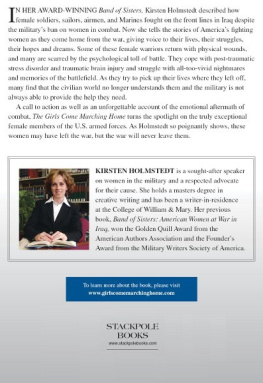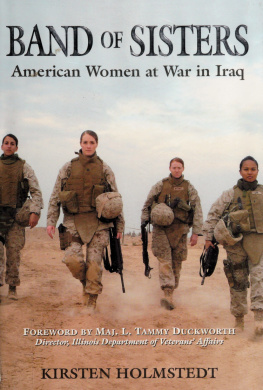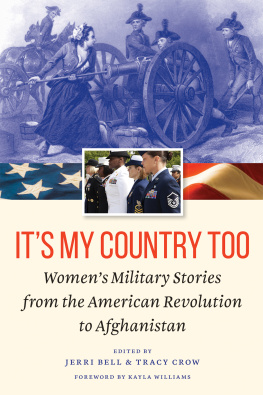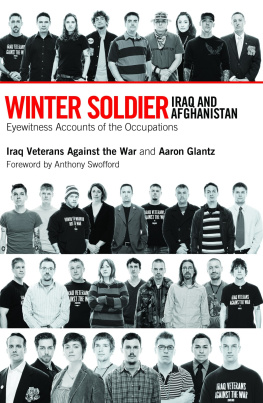Thank you for downloading this Scribner eBook.
Join our mailing list and get updates on new releases, deals, bonus content and other great books from Scribner and Simon & Schuster.
C LICK H ERE T O S IGN U P
or visit us online to sign up at
eBookNews.SimonandSchuster.com
We hope you enjoyed reading this Scribner eBook.
Join our mailing list and get updates on new releases, deals, bonus content and other great books from Scribner and Simon & Schuster.
C LICK H ERE T O S IGN U P
or visit us online to sign up at
eBookNews.SimonandSchuster.com
ALSO BY HELEN THORPE
Just Like Us:
The True Story of Four Mexican Girls Coming of Age in America

SCRIBNER
A Division of Simon & Schuster, Inc.
1230 Avenue of the Americas
New York, NY 10020
www.SimonandSchuster.com
Copyright 2014 by Helen Thorpe
All rights reserved, including the right to reproduce this book or portions thereof in any form whatsoever. For information address Scribner Subsidiary Rights Department, 1230 Avenue of the Americas, New York, NY 10020.
First Scribner hardcover edition August 2014
SCRIBNER and design are registered trademarks of The Gale Group, Inc., used under license by Simon & Schuster, Inc., the publisher of this work.
The Simon & Schuster Speakers Bureau can bring authors to your live event. For more information or to book an event contact the Simon & Schuster Speakers Bureau at 1-866-248-3049 or visit our website at www.simonspeakers.com.
Jacket photograph retouching by David Wu
Jacket photograph Paula Bronstein/Getty Images: Licensed Material is being used for illustrative purposes only and any person depicted in the Licensed Material, if any, is a model
Library of Congress Cataloging-in-Publication Data Thorpe, Helen.
Soldier girls : the battles of three women at home and at war / Helen Thorpe.
pages cm
1. United States. ArmyWomenBiography. 2. Women soldiersUnited StatesBiography. 3. Afghan War, 2001WomenUnited StatesBiography. 4. Iraq War, 20032011WomenUnited StatesBiography. 5. Indiana. National GuardBiography. 6. Afghan War, 2001Campaigns. 7. Iraq War, 20032011Campaigns. 8. Women veteransUnited StatesBiography. 9. Single mothersUnited StatesBiography. 10. WomenIndianaBiography. I. Title. II. Title: Battles of three women at home and at war.
UB418.W65T562014
956.7044'342092520973dc232014000658
ISBN 978-1-4516-6810-0
ISBN 978-1-4516-6812-4 (ebook)
for John
with thanks
The Army National Guard, which has fallen short of recruiting goals during the prolonged fighting in Iraq, is trying new marketing beyond the traditional enticement of college tuition aid. New ploys include free hunting and fishing licenses, passes to state parks, more chances to get signing bonuses, and pink T-shirts bearing the words Soldier Girl.
from a compilation of news headlines published in the Wrench Daily News , a newsletter serving the 113th Support Battalion, 76th Infantry Brigade
CONTENTS
AUTHORS NOTE
T HIS BOOK is a work of nonfiction. To report it, I spent four years interviewing the three main characters, as well as many other individuals. I supplemented those interviews with information from emails, letters, diaries, Facebook posts, Facebook messages, notebooks that the soldiers kept with notes about their missions, yearbooks that the soldiers brought home from their deployments, photographs, newspaper articles, court documents, medical records, therapists notes, and a newsletter distributed to soldiers who belonged to the Indiana Army National Guards Bravo Company, 113th Support Battalion, 76th Infantry Brigade.
Two of the main characters wished to use their real names in this book, and one did not. I refer to her by a pseudonym throughout the work, and also changed the names of her family members and friends. Other soldiers and family members whom I was fortunate enough to have a chance to speak with were offered the choice of whether to use real names or pseudonyms. When I did not have the chance to interview a particular soldier, I generally chose to use a pseudonym. The translator the soldiers worked with in Afghanistan, who presently works at a prison where many members of the Taliban are incarcerated, was afraid that using his real name would bring danger, and I have used a pseudonym for him as well.
Much of the dialogue is reconstructed, which is to say that it is accurate as far as the people who said those words or heard those words could recall when they spoke to me. Otherwise, all details are factual to the best of my knowledge.
I
Indiana, 20012003
1
Hooah!
M ICHELLE FISCHER HAD not yet reached twenty but she already knew how to find the National Guard Armory, a low-slung, modern-looking building made of red bricks with a green metal roof. It commanded a prominent seat beside the Lloyd Expressway, the main eastwest thoroughfare that split the heart of Evansville, Indiana. People used the building as a landmark when they gave directionsother places along the Lloyd Expressway could be described as east of the armory or west of the armory. The recruiters who worked there had established many ways of meeting young people, and Michelle had swayed to pop music inside the vast blue gymnasium there at both her junior and her senior prom. She did not have the nerve to return and talk to the recruiters on her own, however, which was why she had badgered her boyfriend of six months into accompanying her. It was March 2001, and Michelle was eighteen years old. From her vantage point, the Indiana Army National Guard looked like the answer to a dilemma, which was that she found her circumstances dreary.
Michelle had thrust through a childhood full of neglect, making her both headstrong and vulnerable, and it was no accident that she had dreamed up the idea to enlist but required Noah Jarviss steadying company to execute it. That was Michelleaudacious, needy, a little bit self-absorbed. Michelle was quite certain she knew what the Guard would ask of them in return: one weekend a month, two weeks every summer. Maybe they would also be asked to hem a swollen river with sandbags, or gather up the pieces of a town shattered by a tornado. She thought that was a price she might be willing to pay, in exchange for the prospect of leaving home.
Michelle did not look like a soldier. On the short side, buxom, a face framed by masses of long, curly, blond hair, with big brown eyes and a button nose, she brimmed with cherubic innocence, which made her mischievousness a constant surprise. She looked angelic but through her sluiced a prodigious appetite for naughty things such as boys and pot and punk rock music. Life rendered itself to her in contradictory ways, brackish and clear, bitter and honeyed; she had formed the habit of looking for what was funny in sad moments, and she had a laugh like a bell, loud and clear and ringing.
Michelle had spent her entire childhood in southern Indiana, mostly in and around Evansville, an industrial city tucked into a bend in the Ohio River. The rest of the Midwest had forgotten about Evansville so long ago it might as well have been southern, and the pace of life was slow. Vast barges heaped with black coal sank low onto the river, crawling past casino boats where people went to hazard their earnings. Michelles father lived on the opposite shore, buried deep in the woods of Kentucky, in an air-conditioned trailer where he hoarded mementos and told unlikely stories. Everybody Michelle knew seemed bled of hope. She had grown up watching businesses shutter and jobs disappear and her mother slip into poverty and her siblings enthrall themselves with drugs. Ten months earlier, in the spring of 2000, when she had graduated from Evansvilles Central High School, the theme of her commencement had been Oh, the Places Youll Go! So far, however, she had gone nowhere, and the year since she had finished high school had been dispiriting.
Next page







